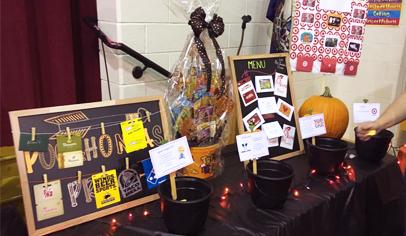School Event Planning Checklist & Guide

The event management process can be overwhelming, but it is rewarding when everything comes together. If you want to organize a successful online school event, it is necessary to understand what makes it. Participants are critical, and marketing is important. A school event checklist is a great way to ensure that an event is successful without sending out a single invitation and will help you achieve success in your school event marketing strategy. Best CBSE schools in Chennai (https://www.babajividhyashram.org/) organize teams to complete the event efficiently. Therefore, there are various strategies to run a school event successfully. Know more on when and how to start planning the school event here.
This blog post will outline the process of effective event planning in seven steps. Event marketing is important for generating sales, whether it’s an internal meeting or a large-scale event. The student government and Student Life committees can help you plan your event and help you reach a larger audience with your event marketing as they have discussed obstacles that can arise during an event. They must approve all official school-wide events before you can begin planning them. However, both in-person and online events can be effective ways to reach different audiences, and technology can help to improve the experience.
What Is The Ideal Time To Plan A School Event?
Event planners begin their planning process six to twelve months in advance. But if you are doing it by yourself, plan your event at least four to six months in advance. However, if you are an expert at doing it, a few weeks in advance also will work. Studies state that getting started on an event 2-3 weeks before the actual event can help reduce procrastination.
Some useful ideas on when to plan are:
- Before marketing your event, 60-70 percent of your planning should be complete, and you should secure all necessary speakers.
- One to three weeks before the event, organize and communicate internally about specific event details.
- One month before your event, finalize your staff and volunteer rosters and prepare your student volunteers for their duties.
- If you need to book vendors for your event, do so at least three months before the event.
How To Plan A Successful School Event?
The entire event planning process can be intimidating, especially if you have lofty goals and strict deadlines to meet. However, the secrets of the event planning industry are revealed in this comprehensive event planning guide. Once you’ve decided on your event, start spreading the word about it. To make your event successful, you’ll need to set SMART objectives that are realistic and achievable. The event planner will be divided into several sections, including budget, activities, food, and staffing requirements.
- Establish a budget for your event. Most event or meeting planners will have a strict budget to adhere to, so plan. Previous events can provide you with an idea of costs. A successful event planner will work within a budget and know how much money they can spend. If you’re planning an event, put together a plan for approval and funding consideration. If your event is too expensive, consider how you can make it more affordable and less labor-intensive by brainstorming ideas.
- Before you begin planning an event, make sure you have everything you need. Prepare materials or merchandise in advance if you need to order them.
- Staffing an event requires a list of volunteers, and a schedule is made available to all volunteers. In previous events, volunteers could be involved in key positions.
- When planning an annual event, find out how many people have attended in the past and how much food has been required. You can calculate the amount of food and plates required in advance by searching online.
- Consult with the suppliers before placing the food order. The quality of the food influences the overall branding of an event.
- The supervisor must oversee the overall operation. As a planning tool, request quotes from suppliers and use a tracking spreadsheet.
1-2 days before your event, conduct a quick rehearsal and double-check everything to ensure that everything runs smoothly and that any technical difficulties are resolved. - One week before the event, publicize it on social media and advertise it on the OHS Skype Bulletin. If you want to increase attendance, you should send a reminder a week before publishing your first message in the Bulletin.
- A Bulletin message sent a couple of minutes before your event will effectively remind prospective attendees about your event.
- When planning an event, consider the number of attendees, the infrastructure required, and the venue. The best-planned event can go wrong if the venue does not meet the needs of your attendees. The location of an event should be chosen well in advance, considering the audience and the nature of the event.
- If the event is outside, consider reserving the space for both days. After securing your objectives and budget, you need to secure your event location. The type of event and the school’s yearly schedule may determine the date and location of your event. Consult your school’s calendar when planning school-related events.
- Contact all suppliers, check the weather forecast, and send a final email to your attendees to ensure your event runs smoothly.
- A well-executed event marketing strategy will increase attendance and engagement among attendees. Include all pertinent event information in your marketing content, and mix up your content with different images or videos from previous events.
- Be familiar with your insurance coverage before holding an event at a school.
- Consider what suggestions you would make to the next person in charge of organizing the event, and include copies of all supporting documents.

The Ultimate Checklist For The On-Show Day Recommended By Good CBSE Schools In Chennai
If your event cannot go ahead due to unforeseen circumstances, you can consider postponing, canceling, or even hosting the event online. A running schedule for your events team is important while organized by good CBSE schools in Chennai. Because events are fast-paced and uncertain, make a contingency plan for any eventuality. During an event, you should have a list of key contacts available. The check-in process at your event can be difficult because multiple people will be arriving simultaneously.
Event planning checklists should include a detailed description of your goals and objectives. Prepare your event documentation, including an event site map, to ensure that your event runs smoothly on the day of the event. Once the event has begun, you should communicate with each stakeholder regularly and ensure that the event pack-down is done properly. Furthermore, to ensure that your event is safe, conduct a risk assessment at the venue.
How To Wrap Up Effectively Post Event?
The last box on your event planning checklist is to keep track of your return on investment. After your event, send out a thank-you email to all attendees and vendors and review your event objectives. Take some time to reflect on what went well and what could be improved next time. Send a survey to your attendees to determine what they learned. It will help you reflect on your results and identify areas for improvement for your next event.
Final Words
Event management can be chaotic, but it is manageable. Even the most meticulously laid out plan may contain a flaw. You can create a seamless event experience by employing the appropriate technology. Cashless payments, smart badges, touchless lead retrieval, and platform technology are available options. Event planning is important, and a well-thought-out schedule will aid in the successful implementation of the plan. Event apps can help you finalize the event’s minute details, help you manage your event more effectively, and reduce expenditure by removing a significant amount of paperwork. Before planning an event, think like a professional event planner by investigating whether permits are required, checking with your local health department, and checking with your local county and city governments.



